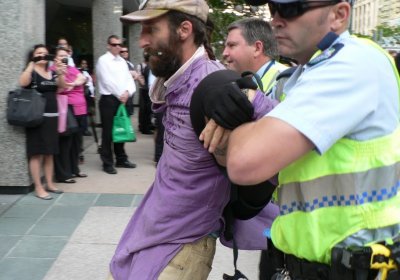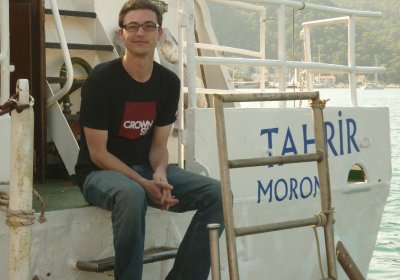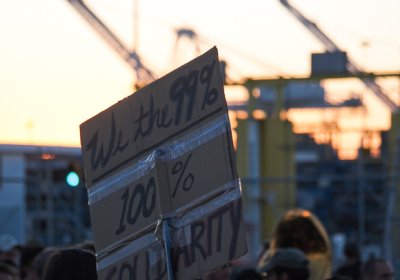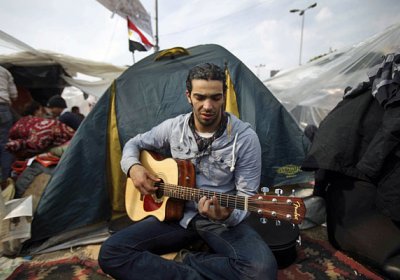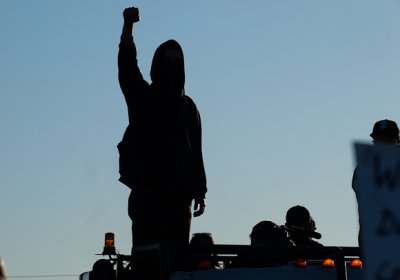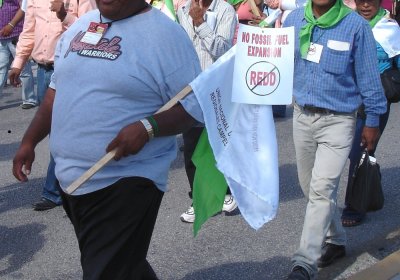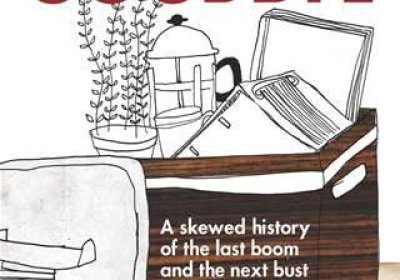About 300 people rallied in King George Square on November 5 to support the worldwide Occupy movement, and assert the right of Occupy Brisbane to keep its encampment in public space. Following the rally, demonstrators marched to Post Office Square, Queens Park, and then across the Brisbane River to Musgrave Park in West End.
902
Free Gaza Australia released the statement below on November 7.
* * *
Contrary to Israeli claims that the takeover of the two Freedom boats Tahrir and MV Saoirse by the Israeli navy was peaceful, organisers of this latest Freedom Wave to Gaza say it was aggressive and dangerous. The two boats were violently intercepted in international waters, says Michael Coleman, an Australian aboard the Tahrir, who is currently imprisoned in Israel.
Sydney Peace Blog — The 2011 City of Sydney Peace Prize Lecture was delivered to a sold-out crowd at Sydney Town Hall on Wednesday November 2 by the 2011 Sydney Peace Prize Recipient Professor Noam Chomsky.
The full text of Chomsky’s lecture, titled Revolutionary Pacifism: Choices and Prospects, is below.
* * *
Nikita gives a report on a day filled with peace, love and a little police aggression.
Experts hired to probe an earthquake near Blackpool left their paymaster red-faced today when they ruled that its controversial "fracking" for shale gas was the most likely cause.
An independent report commissioned by energy firm Cuadrilla into possible links between drilling at its Preese Hall-1 well in Lancashire and tremors which hit the region earlier this year found that it was "highly probable" drlling was to blame.
The report's release coincides with a protest on November 2 that stopped work at the Cuadrilla site near Southport.
“The crisis of the capitalist system has provoked the indignados movement [the ‘outraged’, as they are known in Spain] that has arisen in one country after another across the globe,” Elisa Osori, a national directorate member of the United Socialist Party of Venezuela (PSUV) said.
The PSUV is a mass party headed by Venezuelan President Hugo Chavez. A revolutionary process in Venezuela is redistributing the nation’s oil wealth, bring industries and resources under public ownership and promoting direct, participatory democracy.
Ramy Essam has been featured on my Rebel Frequencies site before. The young folk-singer may best be described at "the troubadour of the Egyptian revolution".
Essam performed at the initial rallies demanding dictator Hosni Mubarak step down, and was kidnapped and tortured as a result. And yet he still writes and performs.
Furthermore, his own personal struggle to sing publicly demonstrates how much more work the revolution still has ahead of it.
The statement below was released by Tar Sands Action on October 31. The group is seeking to stop the Keystone XL pipeline, built to transport oil from the Athabasca tar sands in north-east Alberta, Canada, to refineries in the United States. Mining the Athabasca tar sands is one of the most environmentally destructive practices on the planet. For more information, visit www.tarsandsaction.org .
* * *
Yesterday we got some of the strongest confirmation yet that efforts to stop the Keystone XL pipeline are having a long-term impact on the tar sands industry.
On September 30, 2001, in the midst of one of the worst economic crises in Argentine history, the owners of the Zanon ceramic factory announced plans to switch off the furnaces.
In response, union delegates occupied the plant in the southern province of Neuquen. The next day, workers arrived to join the occupation ― frustrating plans to sell off the machinery.
Occupy has gone viral. First we had flash trading, then flash mobs, and now a flash movement. But this is no flash in the pan.
A new manual by six Europe-based NGOs calls for an end to forest offsets, whereby carbon emissions in one country can be supposedly “offset” by protecting forests in another.
Forest offset programs are largely organised through the Reducing Emissions from Deforestation and Forest Degradation (REDD) mechanism, which receives support from the World Bank and other financial institutions.
The report says there are two motivations for forest offsets: “reducing the pressure to do something about fossil fuel emissions and the short term profit motive.”
Strong>The Short Goodbye: A Skewed History of the Last Boom and the Next Bust
By Elisabeth Wynhausen
Melbourne University Publishing, 2011
219 pages, $29.99 (pb)
From writing stories about workers being sacked during the 2009 global financial crisis, Elisabeth Wynhausen, a journalist at Rupert Murdoch’s The Australian, got a taste of the real thing when she was handed a pink slip of her own.
- Previous page
- Page 2
- Next page
